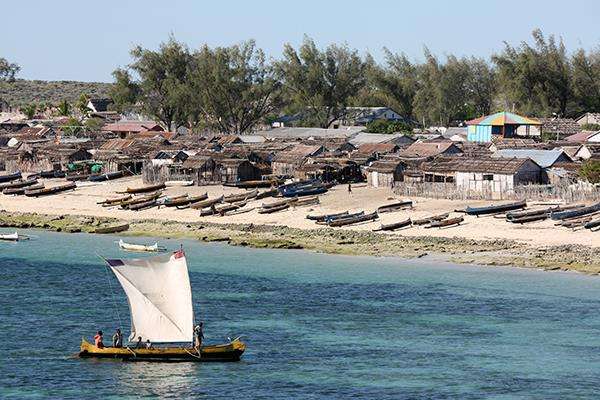Ocean models support Madagascan adaption to climate change

A new project will use global ocean models to identify the most effective way for low income countries, such as Madagascar, to adapt to climate change.
For example, ocean warming model projections will help identify the future risk of coral bleaching, which enables planning for the impact on the fisheries and tourism that depend on the reef.
The National Oceanography Centre (NOC) is playing a key role in this pioneering new participatory project, due to take place in Madagascar on the thirteenth of June, which will involve working alongside scientists from across the world, policy makers from Madagascar, and NGO's.
The seas south and west of Madagascar are expected to warm faster than the surrounding ocean, since the oceans are not warming evenly. This means that the challenges posed by a warming ocean will be felt earlier and more acutely there. Madagascar is also a developing country with limited resources for meeting these challenges.
Dr Ekaterina Popova, who is leading the NOC element of this project, says: "It is really exciting to be able to use the strength of our core science in global ocean modelling to address the practical issues of adaptation to climate change in a developing country. The project uses a pioneering participative approach in which we work together with local communities, governmental departments, and researchers to identify local practices and resources especially vulnerable to climate change. The local knowledge and experience is invaluable in such a project.
Information from global ocean models is immensely complex. Model characteristics will be of little relevance to local adaptation measures unless the model output is translated into a form that reflects local needs. Furthermore, we need to work with local experts to identify impacts of climate change critical for living marine resources in the area. The project is also international, interdisciplinary and global in its further applications."
Funded by the UK's Ecosystem Services for Poverty Alleviation (ESPA) programme and NERC National Capability in ocean modelling, the GLORIA project (Global Learning Opportunities for Regional Indian Ocean Adaptation) is developing a pioneering method that can be applied in other low income countries around the world.
Professor Ian Wright, Director of science and technology at the NOC said "The GLORIA project is a very good example of the NOC's ongoing development of world-leading global ocean models and commitment to using oceanography to aid international development and assist climate change adaptation."
Provided by National Oceanography Centre, Southampton



















